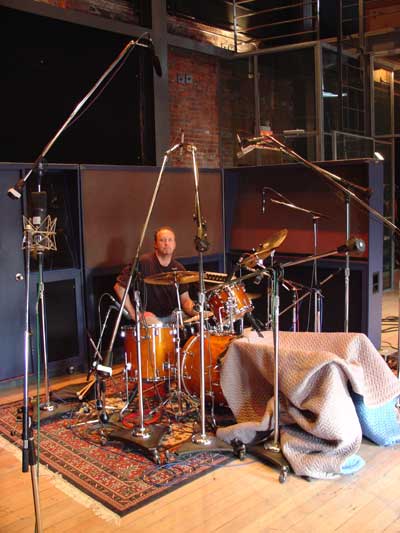Studio Drummer – Enter the Human Being!
*ENTER THE HUMAN BEING!*
We are not machines and it’s the small human miscalculations and movements that are a part of what makes up the feel of a human drummer. It’s not the entire picture though and I will get into that later.
The challenge is to have extremely well developed time, time that rivals that of a machine. There are many variables at play here for all of us human beings. For example our time is affected by other people’s time. If you are playing with a guitar player who rushes terribly and is always ‘on top’ of the beat it will effect your time. Just as if you were playing with a bass player who always drags it will be difficult to not be effected by that at some point. You’ll also be effected by your mood, your level of excitement.
However this is the skill that is essential and central to being a great studio player.
Enter the metronome or as it’s known in studio terminology, the click track. Every successful studio musician is very comfortable playing to a click track and also very comfortable playing without one. You will come in contact with artists or producers who don’t use and refuse to use one. There are different schools of thought here.
Every session that I’ve ever done for Bill Henderson of the band Chilliwack has never been to click. He doesn’t like using them and prefers to go without them. So in this case the band in the studio is relying on my time and meter to create the foundation.
From my experience however, I’d say 90% of the time you’re going to be using one. Especially in today’s world of digital editing. Producers want the ability to be able to cut between takes. They may use the verse from one take, the chorus for another or they may want the option to swap out sections for feel or energy purposes etc. The utilization of a click track is absolutely necessary for this.
tune back in for more….






